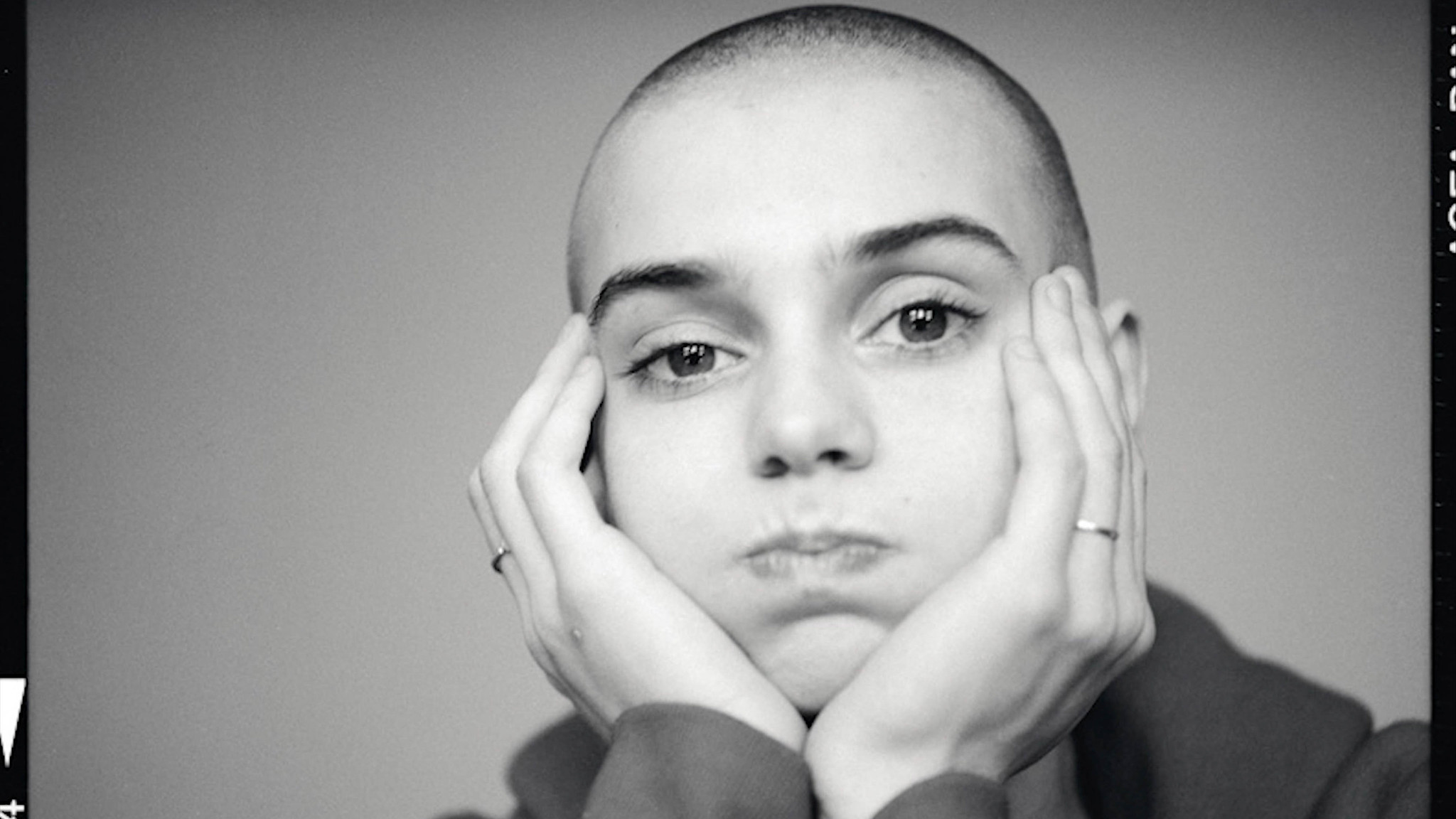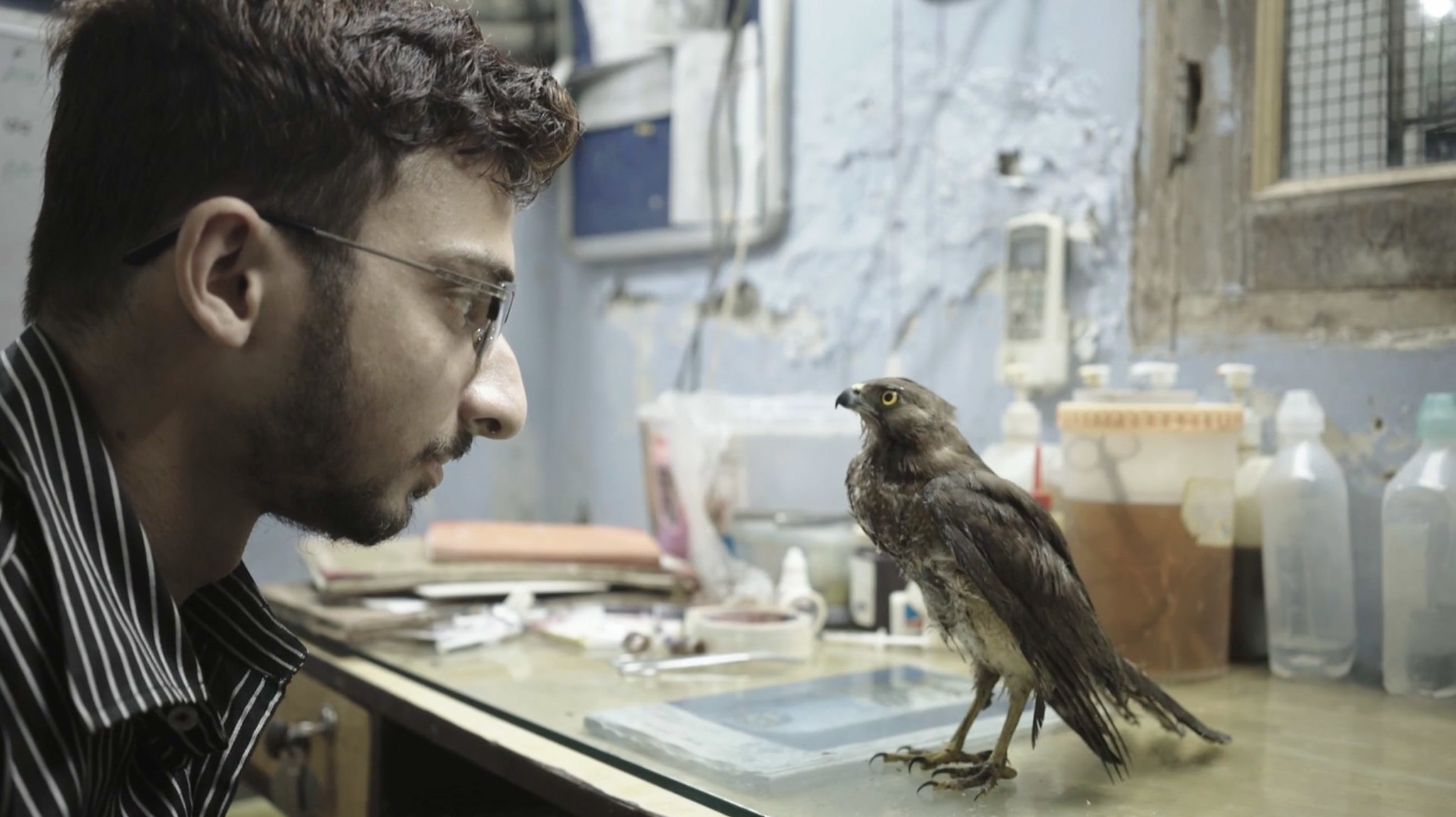Nothing Compares
(UK/Ireland, 97 min.)
Dir. Kathryn Ferguson
Programme: World Cinema Documentary Competition (World Premiere)
Sinéad O’Connor began the 1990s with her international breakthrough record that spoke plainly about her feelings. Titled “I Do Not Want What I Haven’t Got,” the irony of its use soon became plain as the reluctant singer/songwriter became an international sensation and plunged into the spotlight. Sinéad was never comfortable playing by the rules that were set at the height of the music industry’s domination of both cultural and financial reward, yet what developed her image for millions was the sight of her staring into the camera singing what would be her definitive hit. Tears streamed down as she sang the words that give the film its name.
The telling of O’Connor’s story begins in her home country, sharing family circumstances that were challenging, a mother prone to mental illness while the institution of the church provided a bleak if firm hand in shaping her life. Ferguson’s film follows the singer’s journey through a series of re-enactments buttressed with both current and contemporaneous interview material. Some of those closest to her, including musical collaborators, provide further contributions, but for the most part, this is Sinéad’s story told her way, as anyone who has even a modicum of understanding of her fierce individualism would expect.
The story of this young talent who leaves her native land to go to the big city across a body of water is hardly unique. However, it’s clear from some of the rare early footage that O’Connor stood out from her community of like-minded rebellious artists. From her fashion choices to her rage-filled lyrics and singing style, the singer bridged the confessional writings of her folk forbearers with the intensity of punk and the rhythmic sophistication of synth-pop, merging into a then groundbreaking style that would influence generations of artists to come.
At its best, the film contextualizes O’Connor’s place in music history beyond a single hit. It also shows how intrinsically her political statements, and the way she carried herself, were born from the events of a traumatic childhood that she channeled into art. Then came the shocking moment on SNL in which she ripped the Pope’s image, causing an outcry for many about a supposedly blasphemous stunt. The clip of Joe Pesci talking about slapping her from that same 30 Rock stage is indicative of how palpable the reaction was to her papal criticism. Yet the reaction seems all the more ridiculous after decades of revelations about the abuse of the Church’s power and the cover up on a global scale.
Beyond her Cassandra-like proclamations about how Ireland was under the thumb of a corrupt and venal institution run from Rome, O’Connor is also seen to have paid a price for her perceived aggression and outspokenness. In one of the first scenes, she is booed at Madison Square Gardens during the Bob Dylan Birthday celebration (another artist who was subjected to jeers at many parts of his career). From here we see her commitment to racial justice, expressed in part because of a close association with Caribbean culture when she moved to London, or when she decorated her pate with wore a Public Enemy emblem at her first Grammy Awards appearance (Chuck D is one of the interviewees for the film).
As an overview of the popular phase of her career, showcasing her singing and songwriting talent, as well as her confrontational reaction to the strictures of the music industry, the film does fine work. Yet, as per that breakthrough album’s title, it may not be what we actually want. Due to legal complexities, the Prince-written song doesn’t appear at all, and rights issues are often the bane of music docs. Yet there’s a story there, about how someone who always spoke her truth found her greatest financial (and, arguably, artistic) success with words written by another for another. How that song came into O’Connor’s life, how it’s affected her since, and how something that she made internationally famous yet prevented from truly calling her own are questions left unanswered.
Similarly, the later career moves of O’Connor are glossed over in a quick overview. Save for some recent performance footage, the work truly does focus on the period of her first three records. Even then, the musical aspects core to many films of this ilk are sidelined in favour of discussion of the more tabloid-y or political issues – key, of course, but perhaps glossing over some of the remarkable production and muscular performances contained on those records.
Finally, there’s the unfortunate surrealism of watching a film cut before O’Connor’s recent tragedy and struggles, losing her son to suicide days before the film’s Sundance premiere causing concern for many for what appeared to be similar ideation on her own social feed, with the singer admitting publicly her intent to seek professional help. The real world often reshapes how we watch any film, but that’s particularly evident in a documentary that itself feels very much like it has an unwritten ending—at least, as it is currently conceived.
For those who didn’t live through this period, there will be much to admire about both the courage and immense talent of O’Connor. Others will be somewhat astonished by her prescience. She not only shaped the possibilities for what artists could do, she very much was ahead of her time with regards to how forcefully she advocated for what she believed, given that in the current environment, such declarations are the key to success rather than barriers that cause strife and unease.
Ferguson’s film may frustrate as to what it hasn’t got, but what’s there illustrates convincingly O’Connor’s lasting legacy. It reminds old fans of her remarkable run of records during the last 80s/early 90s, and encourages new audiences to dive into these works and discover them for the first time. Nothing Compares may not always favourably compare to other, more nuanced music biodocs, but it is a vital look at the life and work of an artist too often equated with a few seconds of paper ripping on a television variety show.
Nothing Compares premiered at Sundance 2022.













